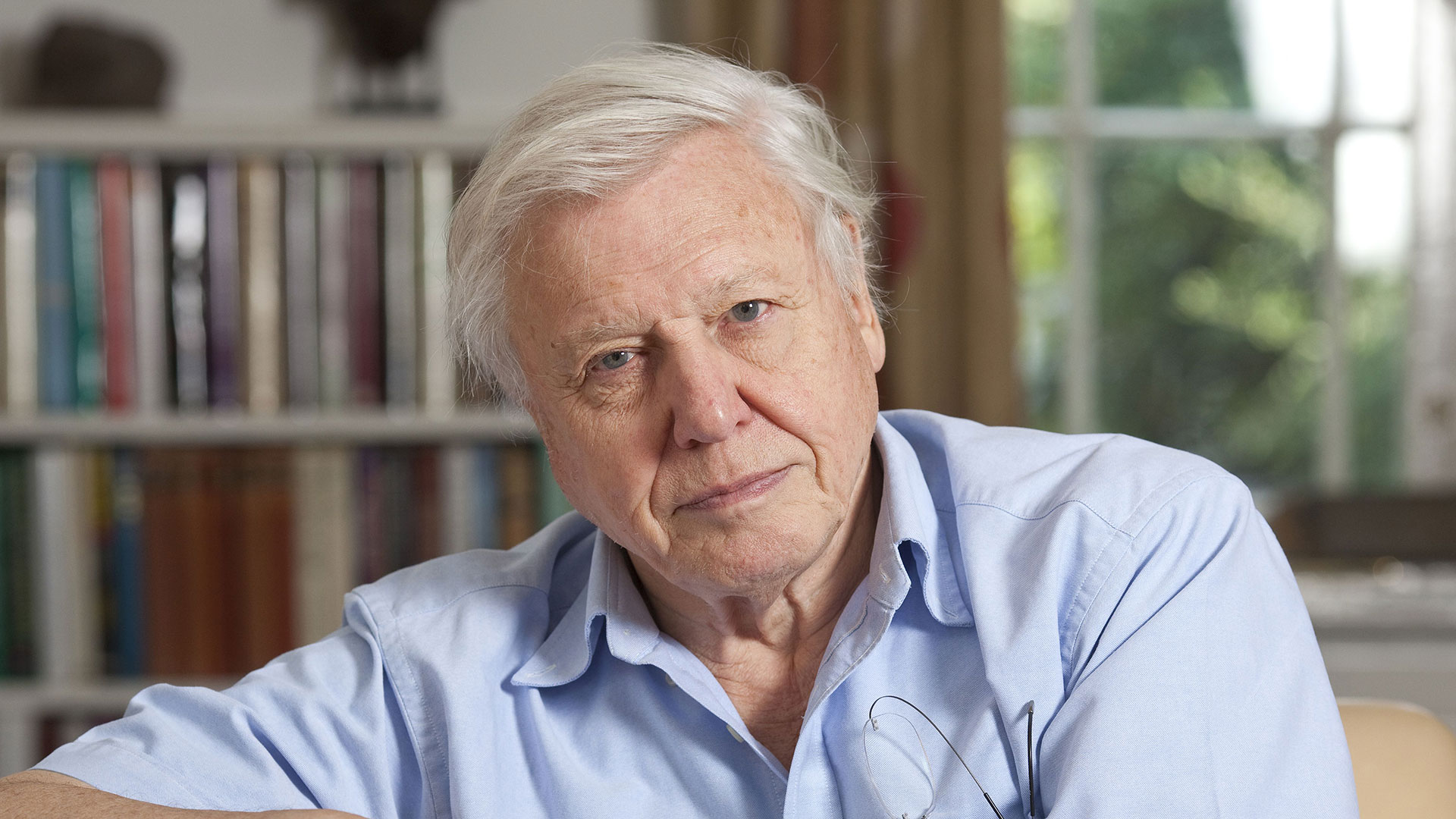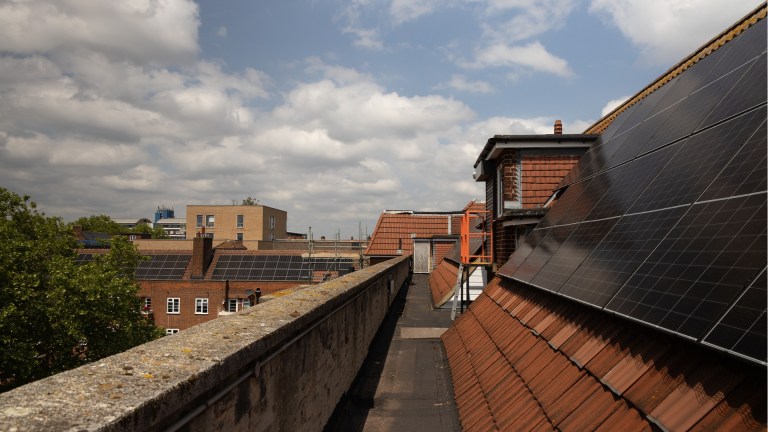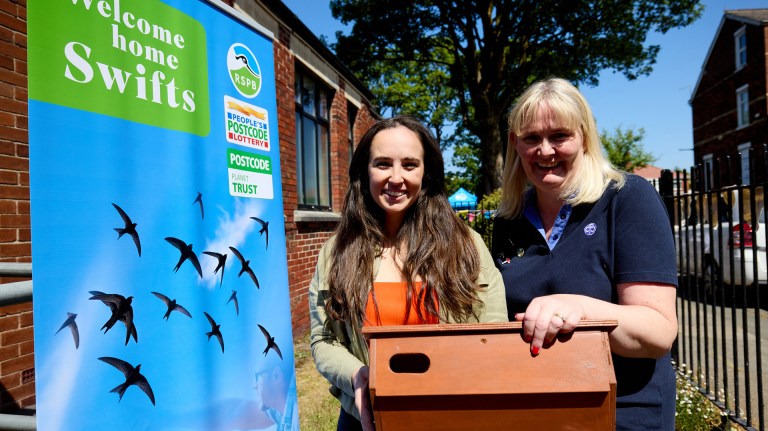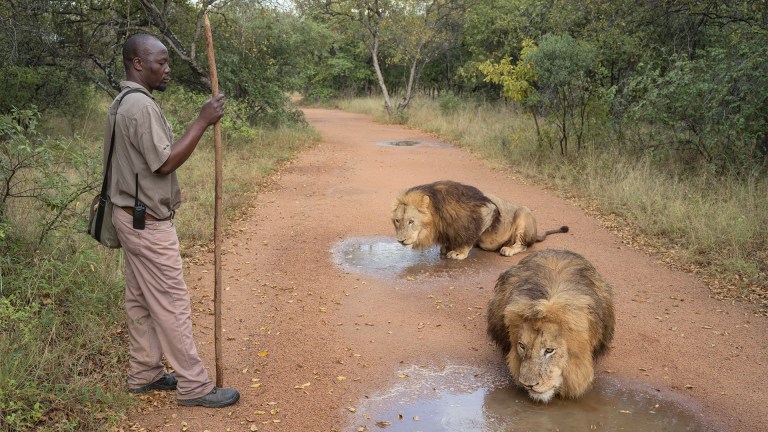This is cataclysmic news (unconnected to climate change) – a 50 per cent decrease through pollution and destroyed habitats from the unsustainable consumption of humans, both in food (often wasted) and everyday materials (including non-biodegradable plastics, often made into throwaway ephemera like, say, the global grotto of Secret Santa “amusements” or the discount goods in the punch-up palaver we now know as Black Friday). “This damage is not inevitable,” thundered Professor Ken Norris, the Zoological Society London’s director of science, “but a consequence of the way we choose to live.”
“I’m very concerned,” agrees David Attenborough in his measured way and contemplates what all of us, now, can do. “Put pressure on governments,” he instructs, simply. “Because the big things that have to be done can only be done by governments. If we go on this way we will lose everything.”
The more the natural world disappears, the more determined he is to show us exactly what we’ll miss: this Christmas we’ve Sky’s Conquest of the Skies. Next year brings four new BBC series: Paradise Birds (“the most romantic and glamorous birds in the world”), Attenborough’s Big Birds (the curiosities of the flightless and feathery), Waking Giants (now long-missed whopper dinosaurs) and three hour-long documentaries on the place he cites as “the most magical” on Earth, The Great Barrier Reef (albeit in tragic decline).
He’s determinedly optimistic. “There has been progress, rivers are cleaner than they were,” he notes. “Humans knew they caused choking fogs on Dickensian streets and they fixed it. Well, now the world has to do that.”
He contemplates how our profit-led, corporate, growth-above-all culture of individualism and materialism is destroying everything else (and will eventually destroy ourselves) citing over-population, as ever, as “the fundamental problem: there are three times as many people in the world as there was 50 years ago”.
Advertising helps fund Big Issue’s mission to end poverty
All these people, he reiterates, need “food, homes, motorways, which all come from the natural world so it’s not surprising the natural world is under great stress”. The immediate solutions are, in fact, the principles of feminism.
“Wherever women are masters of their own fate, wherever women have the vote, wherever women have proper education and medical facilities, birthrate falls,” he notes, with great emphasis. “That’s everywhere. And so richer countries should assist the less rich countries to achieve just that.”
Does he think humans might be, ultimately, an innately destructive, selfish virus? “Well, they might have said that about the dinosaurs,” he muses. “The problem is we’re so intelligent we’ve developed ways in which we can change the world in radical ways. We didn’t invent plastics in order to poison the seas or kill things, we invented them and they were perfectly usable. And it got out of control.”
There is everything here that we need if we behave in the proper way
David Attenborough is not a man for unhelpfully dramatic statements, he’s profoundly old-school – a practical, scientific solution-seeker. He’s unconcerned with esoteric questions such as where mankind might have evolved to in 1,000 years – “We’re not evolving physically, so our future will be determined long before our bodies change” – or the possibilities of time travel: “I’d pity the Tudors if a whole lot of 21st-century people suddenly turned up!”
We contemplate Stephen Hawking’s assertion that for mankind to survive into the next millennium we must colonise other planets (“Escape beyond our fragile planet”), and the great pragmatist here on Earth is having none of it. “For humans?” he blinks. “Planets take decades to reach. This is where we are. Good heavens, we need to sort out what we’ve got! There is everything here that we need if we behave in the proper way.”
He’s never fancied a trip on the International Space Station. “I’d be bored stiff,” he balks. “Yes! There’s nothing to do. There are no animals. There’s nothing new to see, I’d much rather go to the Barrier Reef.
Advertising helps fund Big Issue’s mission to end poverty
“And on the Space Station you can’t escape. You’re there for years! It takes forever to get there and once you get there it’s all black. And you’re weightless, that must be extremely boring.” It would be an interesting view, though, for the first 10 minutes? “Twelve at a push. And I’d be riveted. Ten minutes in space, great – 10 years, no.”
We contemplate surely the biggest question of them all: for the man who’s spent his life showing us how life on Earth works, as a non-religious man, has he any theories as to why? (Hey, if you had the chance, you would ask David Attenborough the meaning of life, wouldn’t you?) “I’ve no idea why,” comes the breezy, crushing reply. “Science needs ‘how’ questions. ‘Why’ questions are for philosophers, not scientists.”
So all of this, all of life ever, is just a random scientific accident? “Yes, I find that plausible,” he nods. “If, as astronomers tell us, there are an infinite number of galaxies with an infinite variety of conditions then it’s not surprising that there should be one, in all that, which would actually suit the kind of life which has evolved on Earth. It’s perfectly sensible.”
Young people absolutely understand this stuff. It’s as they get older other ideas and enticements deflect them
It’s also perfectly, infinitely thrilling. Which is exactly what he’s been telling us, and showing us, and reminding us, decade after decade after decade…
Throughout his extraordinarily proactive life, David Attenborough has believed the key to re-tuning the natural world is “conservation, that’s it, it always was”. Involving the young is essential. “And they are involved,” he nods. “The young are idealists. I get a lot of letters from young people, young people absolutely understand this stuff. It’s as they get older other ideas and enticements deflect them. They’re battered around by the hard facts of the world.”
He’s forever asked for definitive lists of his favourite ever creatures, and cannot comply. “Because if I say I love birds of paradise I get, ‘Why don’t you love bush babies or gibbons?’” he hoots. “There are an infinite number of wonderful creatures.” Does he have a contender for what we might call the biggest bastard?
Advertising helps fund Big Issue’s mission to end poverty
“I’ve not much patience for a little worm that lives in the eye of human beings, leaving African children blind before they are eight,” he decides. “Don’t think he’s too wonderful. When people say, ‘God created all the animals in the world’, I have to say to those people [here, he wags an emphatic finger] – this all-merciful God in which you believe actually deliberately created a worm that turns an innocent child blind? You believe that, do you? If you do, I don’t.”
At least you don’t think it’s us that’s the very worst. “Oh we’ve done some pretty foul things too!”
Our time, too briefly, is up. He smiles merrily and suddenly stands up, stretching his legs, no longer bowed by dodgy knees but standing straight in his new ones. Nonetheless, he’s not as tall as you imagined. David Attenborough remains, though, and always will, a giant of our none-more-confounding species.
Conquest of the Skies is on Sky1 HD, New Year’s Day, 7pm










